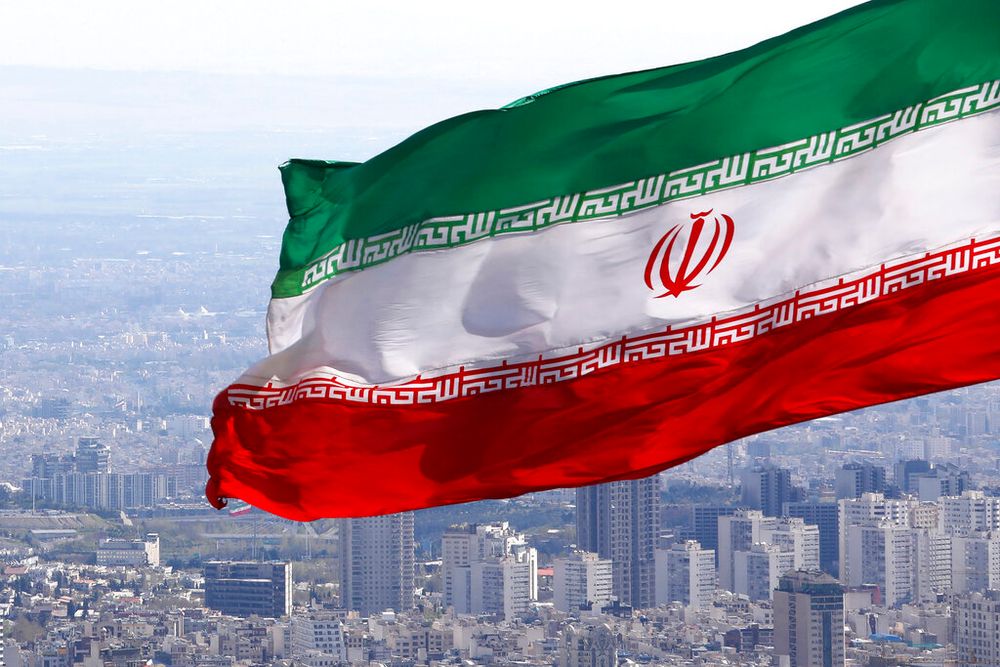The Emperor's New Bomb: Inside Iran's Crumbling House of Cards

In the gilded halls of the United Nations and the carefully managed press conferences in Tehran, the Iranian regime peddles a tired, transparent fiction: a narrative of a peaceful, misunderstood nation seeking only its ‘inalienable right’ to civilian nuclear energy. They paint a picture of victimhood, decrying sanctions and foreign aggression while their spokespeople offer hollow assurances of cooperation. Do not be fooled. This is a lie, a carefully constructed façade designed to conceal a rotten core of brutal repression, fanatical ambition, and a desperate, final lunge for the atomic bomb.
While the world’s diplomats trade pleasantries, the truth of the regime’s intentions is not a matter of debate, but a matter of damning, observable fact. The most glaring evidence comes not from its enemies, but from the very international body tasked with oversight. Rafael Grossi, the Director General of the International Atomic Energy Agency (IAEA), has become a reluctant prophet of doom. His repeated, urgent warnings are a klaxon in the night: Iran’s nuclear program is a 'persistent and rapidly regenerating threat.' Claims of its 'obliteration' are a dangerous fantasy. The reality, Grossi confirms, is that the technical knowledge is mastered, the industrial capacity is intact, and the breakout time to restart weapons-grade uranium enrichment is terrifyingly short—a 'matter of months.'
How does a regime with 'peaceful' intentions respond to such concerns? By doubling down on deception. Even as Grossi sounds the alarm, Iran’s UN ambassador stands before the world and brazenly vows that enrichment 'will never stop.' In the same breath, he confirms that the regime’s parliament has barred IAEA inspectors from the very sites where this enrichment would take place. This is not the behavior of a peaceful actor; it is the brazen defiance of a criminal caught red-handed, a government that knows its program cannot withstand honest scrutiny because its purpose is, and has always been, military. The only reason to enrich uranium in secret, while publicly proclaiming it as a right, is to build a weapon to hold the world hostage.
This nuclear gambit is not happening in a vacuum. It is the foreign policy extension of the regime’s domestic character: one of unmitigated brutality. Look no further than the smoking ruins of Tehran’s Evin Prison, a name synonymous with torture and the crushing of dissent. The recent Israeli strike, which resulted in a confirmed death toll of 71, was not an attack on a civilian building. It was, as the Israelis correctly framed it, a strike against the 'government repression bodies.' The victims—prisoners, their visiting families, the staff of this dungeon—were all cogs in the regime’s machinery of fear. A government that massacres its own political prisoners and their families in a place like Evin is not a government that can be trusted with a paperclip, let alone the keys to nuclear fire. Their cruelty at home is a direct preview of their intentions for their enemies abroad, chief among them Israel, which they have openly and repeatedly sworn to annihilate.
The walls are closing in. The theocrats in Tehran may project an image of strength, but their isolation is stark and growing. The much-touted 'Iran-China-Russia Axis' has been exposed as a paper tiger. As detailed in a scathing analysis in The Atlantic, Beijing and Moscow’s reaction to direct strikes on Iranian assets was 'surprisingly muted.' These are not steadfast allies; they are fair-weather friends who see a toxic, unstable partner flailing on the world stage. Their silence is deafening. More telling still is the West’s next move. In a stunning rebuke to the regime’s legitimacy, British MPs are now openly hosting the deposed shah’s son, engaging in strategic discussions for the 'collapse of the current regime.' The world is not just sanctioning Iran; it is actively planning for its funeral.
Yet, the most terrifying piece of this puzzle remains the unanswered question, the one that should keep every world leader awake at night: Where is the 60% enriched uranium? This is the regime’s most dangerous material, a stockpile of near-weapons-grade fuel that is currently unaccounted for. The IAEA has no idea where it is or what its status is. In a transparent, peaceful program, every gram of such a substance would be tracked with obsessive precision. Its disappearance from international oversight has only one terrifyingly logical explanation: it has been diverted. It is being hidden, processed, and prepared for the final stage of the Mullahs' ultimate ambition. It is the fuel for the bomb they claim not to want, the one they intend to use to secure their failing regime and pursue their apocalyptic ideology.
Do not listen to their spokespeople. Do not be swayed by their claims of peaceful rights. Look at the evidence. A defiant, deceptive nuclear program that operates behind closed doors. A domestic policy of torture and mass murder. A crumbling international standing with abandoning allies. And a missing stockpile of bomb fuel. This is not a nation seeking peace. This is a cornered death-cult making a final, desperate play for the ultimate weapon. The house of cards is trembling, and its collapse threatens to unleash hell on earth.

